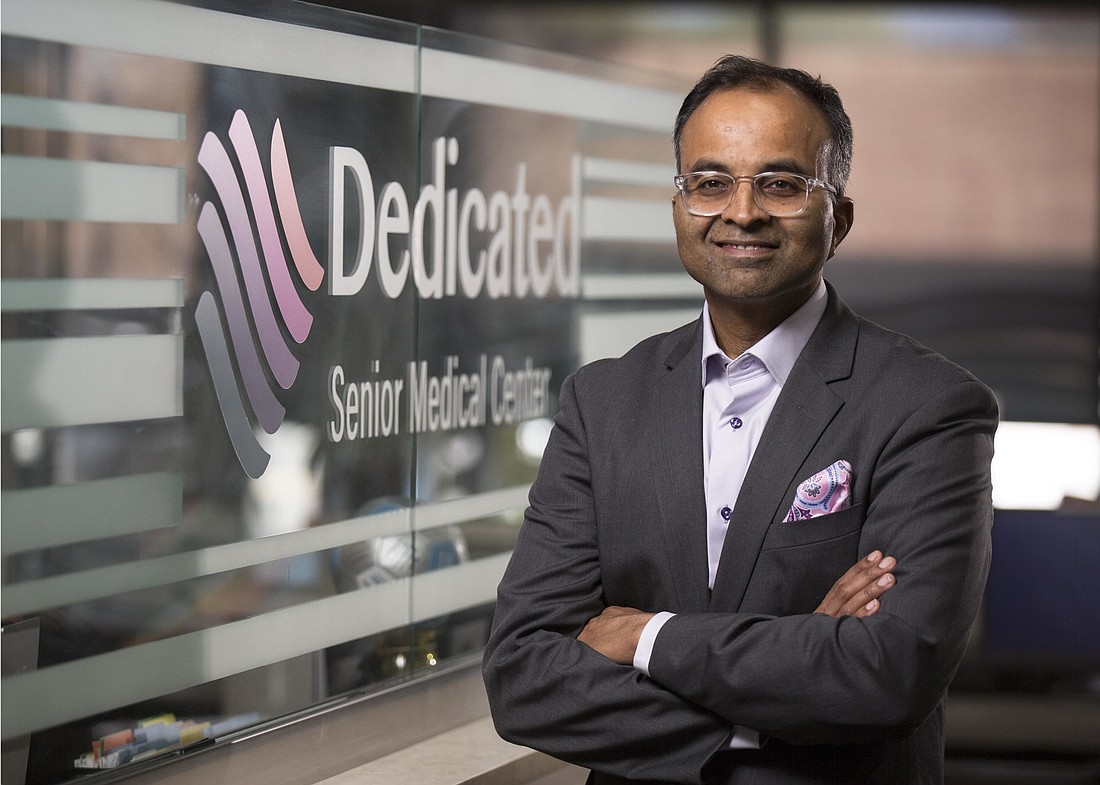- April 15, 2025
-
-
Loading

Forget Medicare for All or any other political machinations of the health care system currently up for debate.
A Miami-based company is already disrupting health care as we know it — and it sees Tampa Bay as the ideal market for its rapidly growing brand, which, to succeed, will have to undertake a big challenge: to alter the way people think about getting health care, from reactive to preventive.
The company, ChenMed, backed by a socially conscious private equity firm called Turner Impact Capital, plans to invest $200 million in the Tampa Bay area in the coming years to build at least 10 concierge-style medical centers for underserved seniors whose health could be greatly improved with regular, affordable access to health care. That in and of itself is a shift, given concierge practices are traditionally designed for higher-income patients, who can afford to pay market rates, without insurance.
“Our incentives are aligned around keeping the patient healthy rather than a typical hospital or doctor’s office, where the patient being unhealthy is what makes money.” Dr. Gaurov Dayal, ChenMed’s chief growth officer and president of new markets.
Doing business as Dedicated Senior Medical Center, privately held ChenMed opened its first health care facility in Tampa in summer 2017. Last fall, it unveiled another one, at 1901 Fletcher Ave.; it also has centers in Lakeland, Bradenton, Clearwater, Largo and St. Petersburg.
“The U.S. health care system is built around patients being unhealthy,” says Dr. Gaurov Dayal, privately held ChenMed’s chief growth officer and president of new markets. “We've flipped that model completely over.”
ChenMed, Dayal explains, caters to seniors who are part of the federal Medicare Advantage program, which incentivizes health care providers to keep patients out of emergency rooms and hospitals via an emphasis on managed preventative care. As a business practice, it’s not as lucrative as traditional Medicare and its fee-for-service model. But the growing popularity of Medicare Advantage — nearly 16 million seniors are now enrolled in it nationwide — indicates ChenMed is wise to look to the future when formulating its growth strategy.
“Our incentives are aligned around keeping the patient healthy rather than a typical hospital or doctor’s office, where the patient being unhealthy is what makes money,” Dayal says.
Of course, that mindset shift in how people think about health care is a boulder-uphill moment for ChenMed. "We do spend a lot on marketing," Dayal says, "but honestly, our biggest sales tool is our members. We can spend as much as we want on marketing, but ultimately what matters most is how our patients feel when they walk out the door, and that's what we spend a lot of time and effort on."
Insurance companies provide a fixed budget per patient to ChenMed, so its Dedicated Senior Medical Centers can offer on-demand transportation and on-site specialist services like x-ray machines and a pharmacy. Doctors even give out their personal cell phone numbers to patients - much like standard concierge practices.
The company makes money by simply staying under its annual budget per patient. “It pushes us to focus on keeping patients healthy,” Dayal says. For example, if a Medicare Advantage plan provides $10,000 for a person’s medical expenses for the year and the services billed amount to only $8,000, ChenMed keeps $2,000 as profit. The company declines to disclose revenue, or profit margins.
The budget is reviewed on an annual basis and is based on a patient’s overall health and any chronic conditions, like cancer, he or she might be suffering from. “The premium is adjusted to reflect the disease state of the individual,” Dayal says. “It also varies by how well you are performing and the degree of patient satisfaction.”
Big private insurers that offer Medicare Advantage plans, like WellCare, Humana and Florida Blue, enjoy working with ChenMed because it boosts their patient satisfaction ratings. In turn, higher-rated plans receive larger budgets from the federal government, get more patients pushed to them and can provide a greater range of benefits.
“If you think of this from the government’s perspective, they’re like, ‘We want great plans to have more patients because they are doing better for us,’” Dayal says. “They truly are incentivizing the strong performers.”
Turner Impact Capital relishes a fruitful relationship with ChenMed, for whom it has financed and built six medical centers in Florida. And Turner Impact CEO Bobby Turner views ChenMed as an excellent investment because it’s finding workable solutions to the health care system’s flawed reimbursement model that's become a flashpoint of frustration for many sides — patients and doctors especially.
“The industry has set a goal that by 2025, nearly 100% of all reimbursements will be value- or outcome-based,” Turner says. “So from my perspective, if we're going to move from treating sickness to preventing sickness, we’ve got to provide great infrastructure for best-in-class, clinically proven health care providers that recognize the role preventative health care can play to reduce the cost of treating the elderly.”